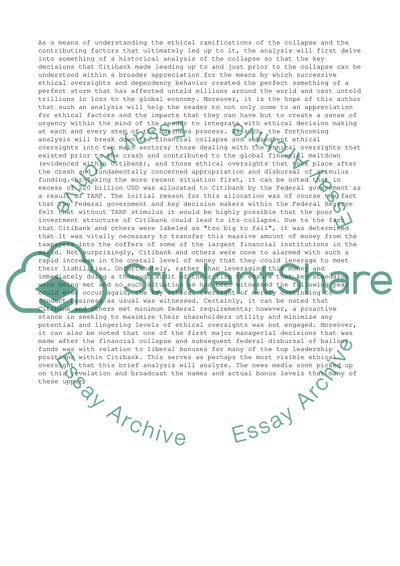Cite this document
(“The Ethics of Citibank Research Paper Example | Topics and Well Written Essays - 2250 words”, n.d.)
The Ethics of Citibank Research Paper Example | Topics and Well Written Essays - 2250 words. Retrieved from https://studentshare.org/business/1482465-the-ethics-of-citibank
The Ethics of Citibank Research Paper Example | Topics and Well Written Essays - 2250 words. Retrieved from https://studentshare.org/business/1482465-the-ethics-of-citibank
(The Ethics of Citibank Research Paper Example | Topics and Well Written Essays - 2250 Words)
The Ethics of Citibank Research Paper Example | Topics and Well Written Essays - 2250 Words. https://studentshare.org/business/1482465-the-ethics-of-citibank.
The Ethics of Citibank Research Paper Example | Topics and Well Written Essays - 2250 Words. https://studentshare.org/business/1482465-the-ethics-of-citibank.
“The Ethics of Citibank Research Paper Example | Topics and Well Written Essays - 2250 Words”, n.d. https://studentshare.org/business/1482465-the-ethics-of-citibank.


